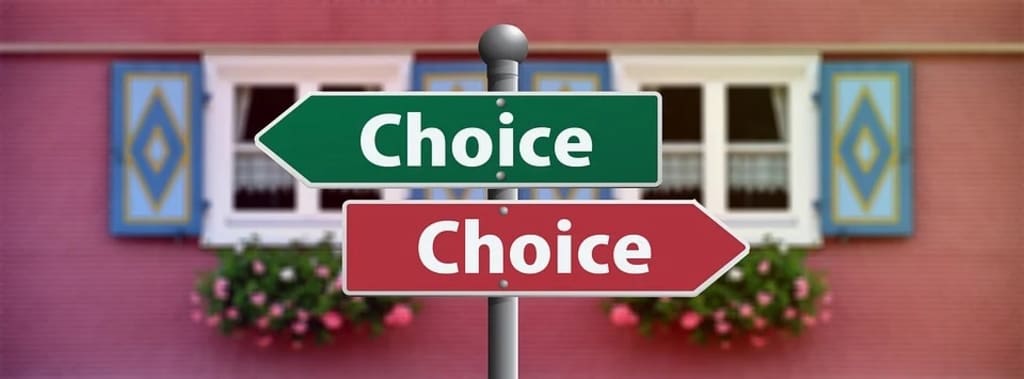If Not Us, Then Who?
"Freedom can never be taken for granted" Nelson Mandela

I don’t know how the hell we let them do that. When it all started, they seemed to be just another bunch of people that will steal what they can and leave. But no – somehow, they stayed. They won the second election, and the third, and the fourth (at that time, we already suspected they were rigging them, but what could we do…), and the fifth, and then we got used to them and stopped counting.
Now, every month we have to gather in ‘places’ (as they call them) in groups of fives. Each group consists of a doctor, a teacher, a journalist, a philosopher, and an economist. No names, only stickers with our categories.
From those categories, they would pick three to become “enemies of the state”. Half of their money would be confiscated and divided among the rest of the nation (most people were not involved in any of those jobs). What’s worst, those chosen people would be the government’s excuse for anything wrong that could happen in the country. That’s why the suicide rate was terribly high. Not the official one, that one was great as hell, but somehow everyone knew at least a few people who kicked the bucket (I’m sorry for the language but I’m used to that so much that I don’t care anymore).
The only way to avoid all of that was to pay five thousand dollars in cash. For us that was a fortune, so only a few could afford that.
I was a journalist. So far, I was lucky enough to avoid being chosen. It was mostly because of the many deals that we used to make beforehand. They were based on solidarity and non-verbalized rule “if they pick someone, the rest will somehow scrap those five grants and set the guy free”. That day was no different.
“Sir,” the philosopher approached me as we entered the building (old, ugly house with only two rooms. One with a Tv and the second one with a bar). “As always… Just in case! We wonder if you would like to… you know…”
“I know,” I said firmly, “count me in.”
He sighed with relief and thanked me. “If we don’t help each other,” I thought to myself, “then who will help us? We have to say no to the government. To show them that we – the oppressed by their regime – are still together and fight.”
Therefore, entering the place I felt like a hero. This solemnity was broken when my phone rang. All my friends were either at places or homes watching our elections.
“Mr. Adam?” someone asked. I couldn’t recognize the voice.
“Who are you? And how did you get my number?”
“The Existing One,” he replied shortly, but that told me a lot. I was screwed. “Don’t be scared. I have good news for you,” he added softly.
I told him to continue.
“Your article won an award. Twenty thousand dollars. It is all yours.”
“Holy shit!” I gasped. “How come? Which article?”
“No questions,” the man said in a way that made me quiet instantly. Besides, there was no point in asking. Those guys will never tell you more than what they want you to know. “There is only one thing. You are not allowed to help anyone. No deals. If you forget that, you lose everything.”
“And the money? Because I’d like to know-” I couldn’t stop thinking about it.
“What money? You won it. It’s yours. The suitcase is already in your house, lying on your table. You will find it there. Just remember about the condition.”
He hung up.
Twenty thousand! That would be a second-hand Ferrari. Or a new iPhone and five years of an excellent life. Or maybe, if I combined that with my current savings, I could bribe the right people and emigrate. This last vision evolved quickly – me, in a normal country, sitting in my own house and reading a book. Drinking coffee. Living without that fear that they will get me. Just peaceful days – and it was overwhelming.
I made my mind. Just a bit of luck. Four good shots.
“Ladies and gentlemen!” the show began. The president was reading from his famous, small, black notebook (the black bible of our lives). “The first enemy of the month are economists. Their dirty practices are a disgrace for normal, hardworking people. We hate people who treat working-class people as numbers. When we ordered to double your wage, they defiantly said it was wrong. So they have to be punished!”
That was their standard oration. The crowd started to clap and cheer.
Two big guards appeared out of nowhere. All the guards looked the same. Always in black uniforms. Always in pairs and always acting like one man.
“Do you pay?” they asked with one voice.
The economist stood up and looked at us. The philosopher took out his wallet. The doctor did the same. I looked at the floor.
“Journalist?” I heard the philosopher. “Our deal, remember?”
“The deal?” I asked innocently. “I don’t remember.”
I still didn’t move my head, but I could feel his disgust.
“Don’t you? Interesting…”
“That’s true.” I tried to defend myself. “I couldn’t do any deals because I forgot my wallet.”
He laughed bitterly. The economist swore. The TV crowd was cheering. The first person who said something constructive was the teacher.
“I got that phone call too. Don’t believe them. You will never see that money. It is a trap.”
I remained silent. The floor was getting more and more interesting.
“People!” the philosopher shouted with anger. “If he wants money, let him have it. We are better than that. Who wants to help? Who has some courage!”
Silence. The philosopher shouted something more, but I didn’t want to listen. It seemed that the deal would not work today. Too many people were looking down.
“Do you pay?” guards asked again. The economist just shook his head. His face proved the old saying that no matter who you are, we all fear in the same way.
In that short moment, I felt so sorry for him that I almost forgot about the money. I wanted to say something, but before I managed to open my mouth, guards dragged him away, so there was no one to help. The philosopher looked at me and said shortly:
“Pig.”
I couldn’t argue with him, so I changed the room. I needed a drink. I ordered the cheapest thing on the menu (there was no bartender, only a soulless robot).
Sipping my drink, I was staring bluntly in the bottles. All the bottles in this country were green or brown – what a beautiful metaphor for our country. This or that. Left or right. With us or against us. Nothing in between. Even if you don’t care and you try to stay out, you’re supporting them. So, to explain that in a simple, international way - my Denmark was more of a prison than Hamlet could imagine. Can you blame me, that I wanted to take my chance to get out?
They started to shout again. I didn’t even turn my head. They chose the second enemy. This time the negotiations were shorter and soon after, I heard only curses yelled by the doctor and the happiness of the crowd. Then it was peaceful again.
“Thus passes the glory of the world,” said the philosopher. I turned around. I didn’t notice when he entered the room.
“I’m sorry,” I smiled meaningfully.
He didn’t reply. He sat next to me and ordered something equally cheap. The time was passing by, the clock was ticking, and the machine was serving drinks. I noticed that my hands are shaking. Philosopher noticed that too.
“Have you ever thought,” he asked, “what will happen if they pick you?”
I snorted with laugher.
“Impossible,” I said after a while. “Someone will always help.”
“But you didn’t help anyone, did you?”
“But I had a good reason. Listen,” I started to explain my vision, but I was interrupted by two big guards in black uniforms.
“Do you pay?” they asked with their inhumanly synchronized voices.
It took me a second to understand what was going on. When I realized, I instinctively grabbed the philosopher’s hand. He avoided me gently. I looked into his eyes. They were like two cubes of ice.
“Help me!” I whispered. “I know. I was wrong. I’m sorry. But please help me.”
“Why should I?” he asked innocently.
“I don’t need much. Only two hundred. I have the rest, just that tiny bit.”
He took out his wallet. It seemed that he was reaching out. That he would give it to me and I will be safe. I started to cry. I was so selfish and he still helped me. What a wonderful man.
He waved me off.
“We had a deal,” he said.
I felt four hands on my arms. They did it slowly. I had time to look around. The philosopher was laughing and the rest was leaving.






Comments
There are no comments for this story
Be the first to respond and start the conversation.